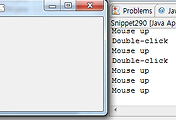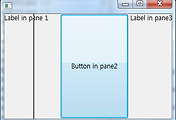자바 여러가지나
퍼포먼스 등 잘나와있다.
http://www.javamex.com/
Java Object 메모리 사용량
Java type |
Bytes required |
boolean |
1 |
byte |
|
char |
2 |
short |
|
int |
4 |
float |
|
long |
8 |
double |
|
reference (pointer) |
4 |
array |
+4 (for length) |
모든 Object는 8byte의 Header(Housekeeping data)를 갖고, 무조건 8의 배수이다.
ex) 1개의 boolean을 가지고 있다면
Header 8 + boolean 1 + padding 7 = 18bytes
Array 기본
Header 8 + length정보 4 + Object*length + padding
(boolean array는 무조건 boolean하나당 8bytes)
String
C라면 unicode를 다루지 않기 때문에 1byte*문자수 + 1byte이지만 Java에선 전혀 다르다.
Minimum String memory usage (bytes) = 8 * (int) ((((no chars) * 2) + 45) / 8)
Housekeeping 8 + array 12 + padding(multiple of 16bytes (32-bit))
문자 1개당 2byte
다른 여러 변수들(사용하지 않더라도)
다시, 아무것도 없는 String은
{ char[]Rerference 4 + 3개의 int변수 4*3 + header 8 + padding(8) 0 } + emptyArrayString 12 + padding(16) 4
=> 40bytes를 사용. (C에서는 1bytes)
ex) 17개의 문자열은
{ char[]Rerference 4 + 3개의 int변수 4*3 + header 8 + padding(8) 0 } + 17ArrayString (12+17*2) + padding(16) 2
=> 72바이트 사용. (C에서는 18bytes)
1. We're actually being slightly unfair here. In C, a 17-character string plus terminator may well require just 18 bytes on the stack. But if you were to allocate 18 bytes to store the string via malloc(), then that allocation from the malloc heap would generally require some extra bytes of "housekeeping", just as for a Java object. (It would typically require in the order of 8 or so bytes, however— still a big difference!)
(substring은 parent와 메모리 공유 -> 절약가능)
http://www.javamex.com/tutorials/memory/string_saving_memory.shtml
public class CompactCharSequence implements CharSequence, Serializable
{
static final long serialVersionUID = 1L;
private static final String ENCODING = "ISO-8859-1"
private final int offset
private final int end
private final byte[] data
public CompactCharSequence(String str)
{
try
{
data = str.getBytes(ENCODING);
offset = 0;
end = data.length
}
catch (UnsupportedEncodingException e)
{
throw new RuntimeException("Unexpected: " + ENCODING + " not supported!");
}
}
@Override
public char charAt(int index)
{
int ix = index + offset
if (ix >= end)
{
throw new StringIndexOutOfBoundsException("Invalid index " + index + " length " + length());
}
return (char) (data[ix] & 0xff);
}
@Override
public int length()
{
return end - offset
}
private CompactCharSequence(byte[] data, int offset, int end)
{
this.data = data;
this.offset = offset;
this.end = end;
}
@Override
public CharSequence subSequence(int start, int end)
{
if (start < 0 || end >= (this.end - offset))
{
throw new IllegalArgumentException("Illegal range " + start + "-" + end + " for sequence of length " + length());
}
return new CompactCharSequence(data, start + offset, end + offset);
}
@Override
public String toString()
{
try
{
return new String(data, offset, end - offset, ENCODING);
}
catch (UnsupportedEncodingException e)
{
throw new RuntimeException("Unexpected: " + ENCODING + " not supported");
}
}
}
'Program Language > JAVA' 카테고리의 다른 글
| SWT Snippets : Accessibility.. (Updating..) (0) | 2011.07.15 |
|---|---|
| SWT Snippets : Button..(Updating..) (0) | 2011.07.15 |
| SWT Snippets : ExpandBar.. (Updating..) (0) | 2011.07.15 |
| SWT Snippets : Path.. (Updating..) (0) | 2011.07.15 |
| SWT Snippets : TabFolder.. (Updating..) (0) | 2011.07.15 |



댓글